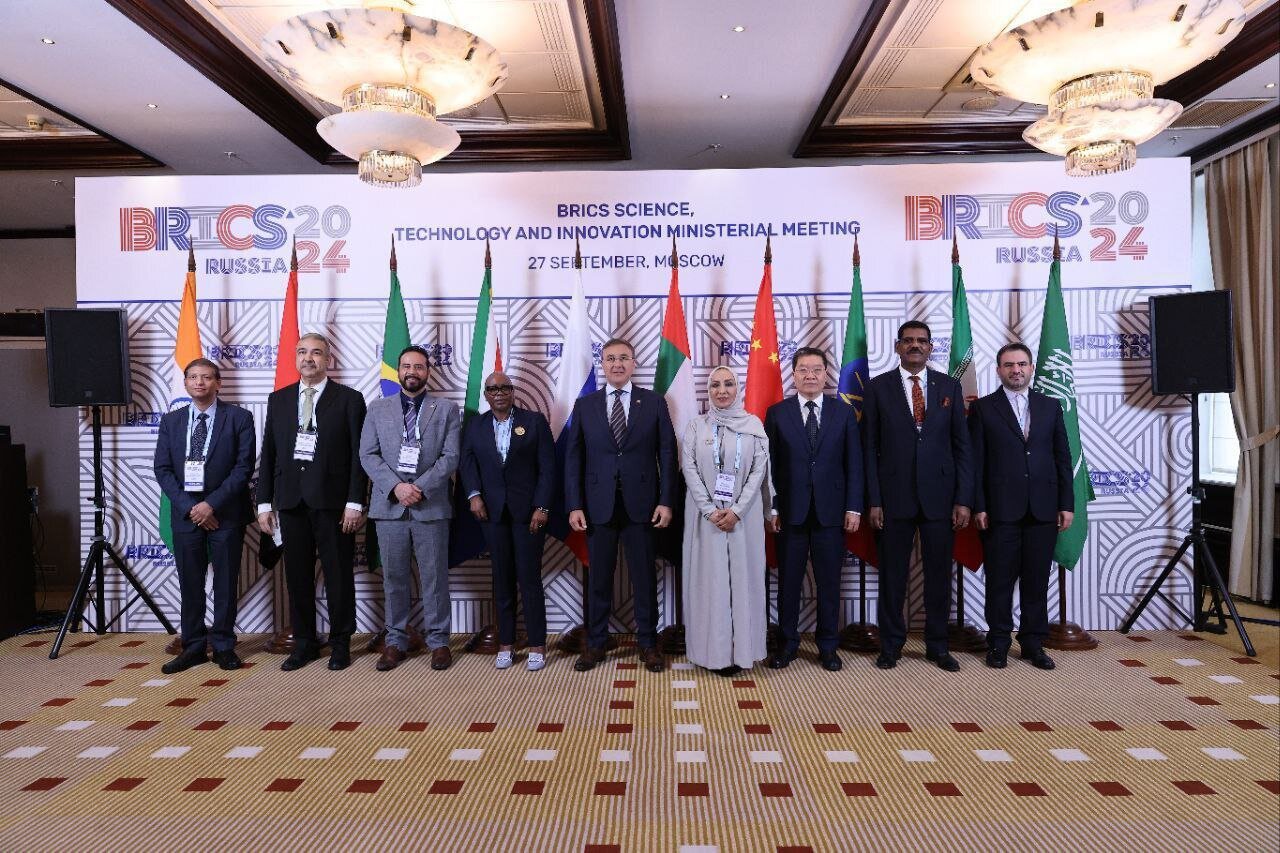Tehran invites BRICS to foster co-op in nano-tech, bio-tech

TEHRAN –Iran has called for developing cooperation in nanotechnology as well as biotechnology with BRICS member states.
“Enhancing ties in nanotechnology, biotechnology, energy, renewable energies, water, marine economy, food security, artificial intelligence, as well as digital economy with BRICS are among Iran's top priorities,” IRNA quoted Sajjad Ahadzadeh, the country’s representative in BRICS Science, Innovation, and Technology group, as saying.
He made the remarks while addressing participants in the 12th BRICS Science, Technology, and Innovation Ministerial Meeting held on September 27 in Moscow.
Putting forward suggestions and initiatives to create new mechanisms in significant sectors such as environment, climate change, and transportation, Ahadzadeh announced Iran’s readiness to host future meetings of the working group on spatial information and its applications and the working group on energy, renewable energy, and energy efficiency.
The official also extended an invitation to participants to attend Iran Nanotechnology Exhibition which is scheduled to be held from November 3 to 6.
The 12th Meeting of BRICS Ministers of Science, Technology, and Innovation, was chaired by Minister of Science and Higher Education of the Russian Federation Valery Falkov.
The event was attended by the heads and representatives of related agencies from Iran, China, Russia, India, Brazil, South Africa, the UAE, Egypt, and Ethiopia.
Meeting participants discussed existing national policies within BRICS in science, technology, and innovation (STI), what working groups have accomplished in 2023–2024, the outlook for BRICS STI Framework Program development, and current initiatives in member states.
Iran, BRICS to develop Scientific ties
Representatives from Iranian universities and higher education institutes and the BRICS Expert Council held a meeting on April 22 in Tehran to discuss ways to expand scientific cooperation.
It was the first meeting held on the topic of scientific research and technological initiatives.
During the meeting, Victoria Panova, head of the council who is also Vice-Rector of HSE University in Russia, and Omid Rezaei-Far, an official with the Ministry of Science, Research and Technology, explored avenues to boost the scientific and technological ties, IRIB reported.
“Despite cruel sanctions, Iran has achieved many accomplishments in agriculture, biotechnology, technology, and engineering sciences fields,” IRIB quoted Panova as saying.
She also noted that unlike what is imagined, the BRICS group is not merely an economic group, it is here to introduce the high capacity of the BRICS in terms of science and technology as well.
Panova went on to emphasize Iran’s capabilities and readiness to expand scientific cooperation with member states of this international organization.
Rezaei-Far, for his part, said the working groups will be established soon and aligned with BRICS educational activities; academic members of each working group will collaborate with BRICS to fulfill its goals.
Highlighting the high scientific capabilities of Iranian universities and science and technology parks, Rezaei-Far announced Iran’s readiness to participate in BRICS scientific endeavors, particularly skill training courses with an emphasis on innovation and technology.
The BRICS group, comprised of Brazil, Russia, India, China, and South Africa was established in 2009. It has emerged as a significant force shaping global economic discussions.
Iran, alongside Argentina, Egypt, Ethiopia, the UAE, and Saudi Arabia, received an invitation to join this influential bloc effective January 1, 2024, signaling a significant transformation in the geopolitical arena. Russia chairs the BRICS group in 2024.
MT/MG
Leave a Comment